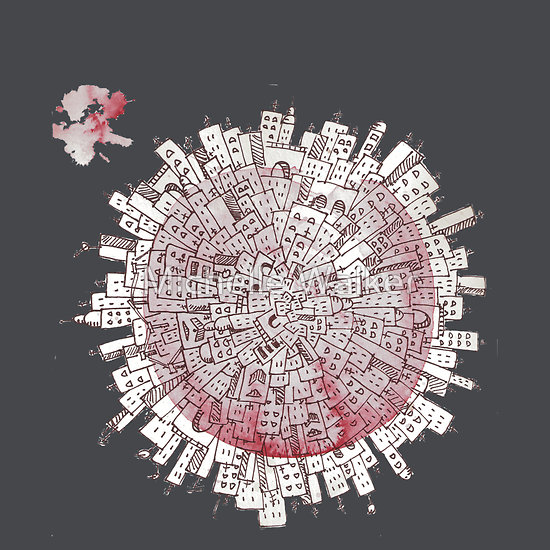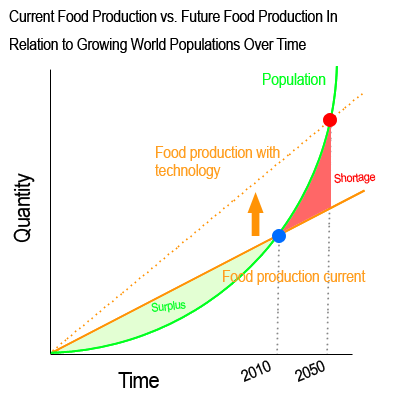Some say “yes,” some say “no,” but in the end we need more facts than our insulated bubble might provide us.
You can view the world from what you passively hear each day. Famine here, war there but nothing affects our daily routine. I worry when this will catch up with us.

As a core nation we use 3/4 of the world’s resources. We represent 15% of the worlds population (North America specifically) and yet we have such complete control over oil, coal, nuclear products, food, pulp/paper, cotton, labour. Over the course of our development, we have fought and demanded, paid for and stolen resources to make ourselves more comfortable. This is great for us, we get to go and buy .99 kids clothing down at Superstore but what is the cost of this to the world?
The world population is expected to double by 2050 which according to scientists is an incomprehensible exponential growth in the amount of resources we will need, especially with China and India rocketing towards levels of affluence rarely seen outside of core nations (North America, Western Europe, Japan, Australia). And with birth rates in these nations at an all time low, it won’t be a double amount of Americans.
Food production levels are often represented by a geometric line (straight orange line) and population (green curved line) as mentioned is an exponential function. So our challenge has always been to use technology to shift the orange line upwards creating more food with the same given amount of resources. (I apologize for my rudimentary graph, but you get the point)

You can see we will be moving towards a shortage, but the thing is, we don’t really know where the food production line is. We know we are getting closer to the shortage side (or perhaps we are already there given the 100 million deaths per year via famine) but we don’t really know the exact dates or conditions where these lines will become real.
The economists argue that technology will always be our saviour. Make new genetic types of rice, new fertilizers, new pesticides… But this only works until the Earth is exhausted and destroyed, the soil is so degraded that it won’t produce anything else. We solve a food crisis with more intensive technological farming, but in the end the farmers get sick, the soil gets polluted and we slowly decline back worse than where we were before. BUT, we don’t see it because our land is beautiful and relatively untouched by pollution and destruction.
So, this brings me to another simple mathematical formula to put this into perspective.
Impact on the Planet = Population X Affluence X Technology (IPAT) or I = P * A * T
So think about the US for a minute. Large population, very affluent (less now but still more than others) and intense technology (look at Monsanto and the Food Inc. movie for example). With all of these factors they are causing a major impact on the planet. Take for example China, HUGE population X growing affluence X dirty technology (coal, etc.) and you get a similar level of destruction…
So to add some new arguments to this, a fellow named Paul Ehrlich who has been looking at this problem for years has come to the following conclusion. We need population controls. Two children per family worldwide or less. Or we will be so overpopulated that nature will have to come into the equation (mass famine, disease, war). Now you might say that nobody has the right to tell anybody what they can and can’t do with their lives. To you I say, “get your head out of your ass” because these ideas will come to a head some day and if we don’t truly start trying to address this problem NOW, then you will be fighting for your life in the near future.
Paul Ehrlich has been campaigning for population control in one way or another but deems himself unsuccessful. The sky apparently isn’t falling and we are just fine. Well it is your prerogative to decide that, but in the end remember we have to share to planet (I hate to have to say that because it’s such a liberal thing to say but it’s very true). We need to really start looking at alternatives to what we are doing now. And since I can’t directly impact the population side of the equation I have chosen to decrease my affluence and have personally taken a good look at things I really need vs. what I want. I have sold my car (I am lucky enough not to need it right now) and I do everything I can to reduce my consumption. I recycle like crazy and keep up to date on current events, new technology and new options out there to decrease my impact.
My thanks to my Geography teacher Ron McPhee (at Douglas) with whom I am currently studying with. He is doing a marvelous job of really weaving the issues together in a relevant and interesting way. I had my worries before, but now I have more information to form an opinion.
Think twice about waste, think twice about things you just don’t need, reuse, reduce and try to reduce your impact.

2 thoughts on “Is Earth overpopulated?: IPAT and the Population Bomb”